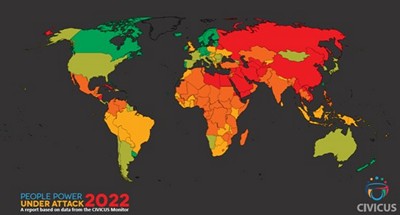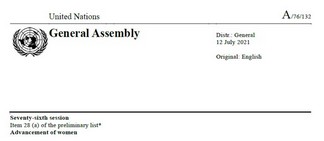Gender Integration in Human Rights Investigations
Извор: WUNRN – 19.10.2018

October 5, 2018 – Any investigation of human rights abuses and violations that does not include gender as one of the criteria risks being incomplete at best or biased at worse, said UN Deputy High Commissioner for Human Rights Kate Gilmore.
“Investigations that overlook the ways in which gender other identities and the associated social norms serve aggravate, falsely normalise hid an even excuse human rights impacts, cannot be accepted,” Gilmore told an audience during the annual discussion on the integration of a gender perspective throughout the work of the Human Rights Council.
“Gender identity and status matters.”
Wrongful gender stereotypes and assumptions can manifest as acceptable human rights violations and rob the survivors of their agency and testimony, leaving them voiceless and undocumented.
Gender sensitive investigative methodologies refers to work that pay attention to the differences in experiences of both men and women, rather than as one monolithic group of conflict survivors for example, said Shuvai Nyoni, director of the African Leadership Centre. Nyoni is the former gender advisor to the Commission on Human Rights in South Sudan and at the African Union Commission of Inquiry on South Sudan. By paying attention to differences in gender experiences, is the key to understanding and unearthing what went on in the context of where the violations took place, she said.
“I firmly believe that gender sensitive methodologies have helped to provide me, as a gender advisor, a truer and more realistic sense of the lived reality of survivors, victims and even perpetrators in a society affected by violence and conflict,” Nyoni said.
As an example, Nyoni highlighted how while conducting interviews looking into reports of sexual violence against women, men never referred to sexual violence against women as a crime only against the woman or survivor. It was described as a violation of the family and the community as a whole. “This is something we would have missed if we had gone looking for information about single perpetrators and single victims,” she said.
Gender analysis was key in identifying impact in the investigation of the Commission of Inquiry on Syria. Its report “I lost my dignity” analysed sexual violence during conflict in Syria, documenting all affected – including men and boys –citing the consequences and differences in their gender perspectives.
“Documenting gender-based crimes allows for a broader analysis of a wider spectrum of human rights concerns and provides a wider perspective,” said Paulo Pinheiro, Chair of the Independent International Commission of Inquiry on the Syrian Arab Republic. “This includes, for instance, the right to health, including sexual and reproductive health or access to housing, land and property or civil documentation.”
This wider spectrum has influenced recommendations made by the Syria Commission, Pinheiro said. This included recommendations such as ensuring social and economic reintegration of survivors back into their communities, providing adequate reparations, and releasing all those vulnerable from places of detention.
Documenting these violations also shows how the “entirety of these experiences go beyond sexual and gender-based violence and sexual violence against women,” said Madeleine Rees, Secretary General of the Women’s International League for Peace and Freedom. Citing the report by the Commission of Inquiry on Burundi, investigators were also be show the context of violence – who exercises power, who suffers and who supports it – in the nexus of violations of civil and political rights and their particular effect on women and girls.
To help other human rights investigators and investigations best integrate a gender-lens into their work, the UN Human Rights Office has developed a publication that provides concrete steps on how to implement this analysis.
“Integrating a gender perspective into human rights investigations” provides practical guidance on bringing a gender perspective throughout the work of investigative bodies. Victoria Kuhn from the Women’s Human Rights and Gender section, called the report a way to “restate the obvious” – that gender is an essential part of human rights investigations.
“Without a gender analysis, the conclusions of the investigations not only risk to be inaccurate and incomplete, but may actually also be detrimental, perpetuating gender stereotypes and false assumptions – making invisible the experiences of women, girls, LGBTI persons or even male survivors of sexual violence,” said Kuhn.
https://www.ohchr.org/EN/NewsEvents/Pages/GenderAndHumanRights.aspx



